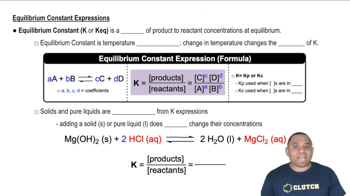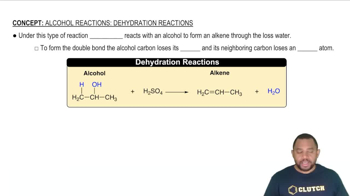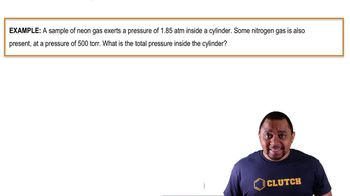Textbook Question
A reaction vessel at 27 °C contains a mixture of SO2 (P = 3.00 atm) and O2 (P = 1.00 atm). When a catalyst is added, this reaction takes place: 2 SO2( g) + O2( g) ⇌ 2 SO3( g). At equilibrium, the total pressure is 3.75 atm. Find the value of Kc.
2
views





